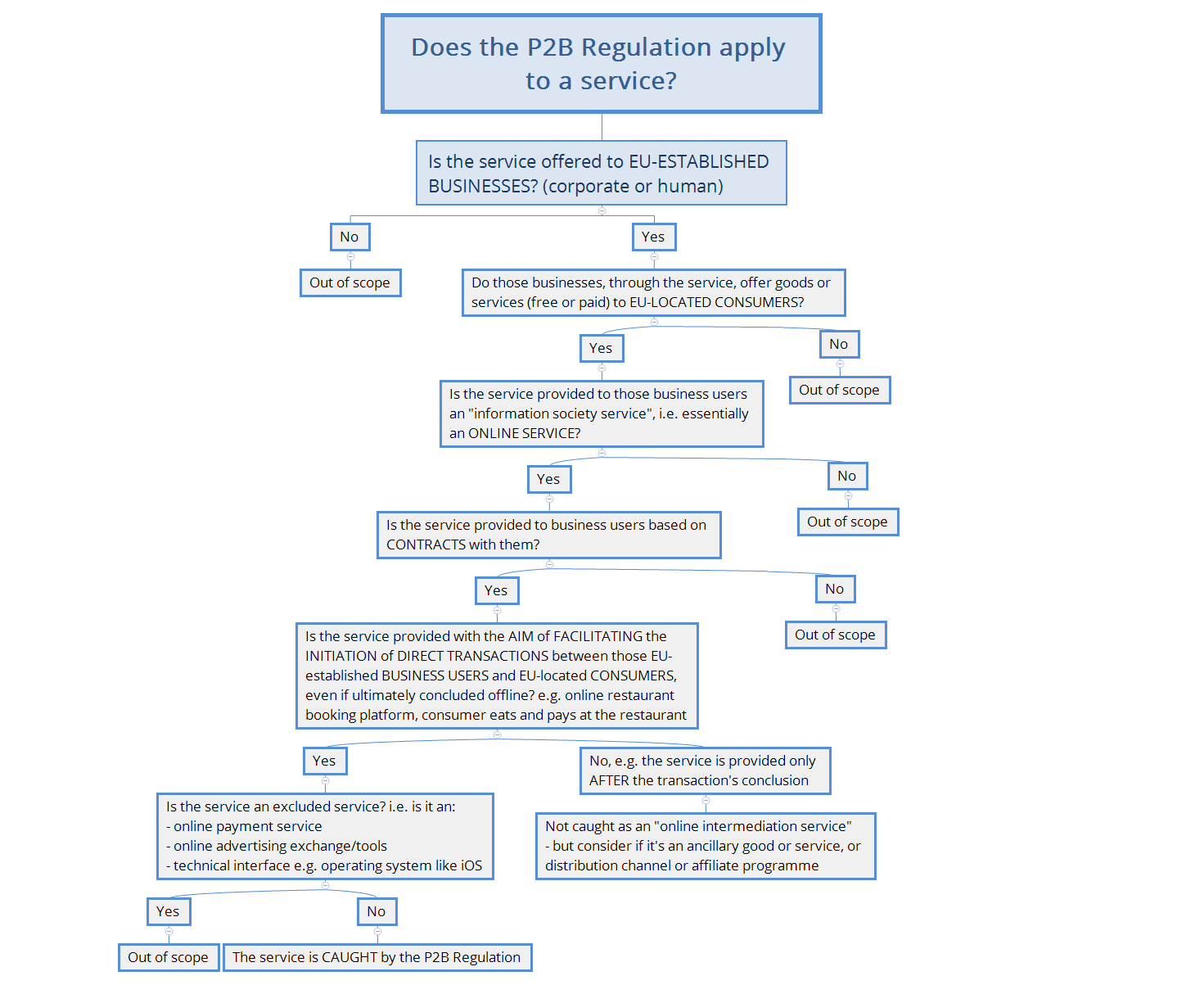As well as the risk of terms being void, further enforcement action is possible, depending on the Member State. In the UK, action for loss/damage arising from breach of key elements of this Regulation, and also action by "qualifying" bodies such as SME industry associations in relation to any non-compliance, may be taken under the The Online Intermediation Services for Business Users (Enforcement) Regulations 2020 (2020/609).
Most EU Member States seem to be behind in publishing their own national enforcement measures, but some Member States could well provide for fines. The European Commission issued a detailed Q&A about the Regulation on 10 July, and will be issuing guidance on ranking (see below) in the next few weeks.
The rationale for this Regulation is that many EU businesses, including SMEs, offer their goods or services to EU consumers through online platforms ("online intermediation services"). They often depend on those platforms for their livelihood. In some cases, typified by Amazon Marketplace, the platform may also compete with its business users (there, marketplace sellers) by itself offering goods/services to consumers. Ultimately, protecting these EU businesses should help protect EU consumers: that's what’s envisaged.
Therefore, unsurprisingly, this Regulation borrows many concepts from consumer protection legislation, although its direct protections are for business users of platforms. It aims to improve fairness and transparency for those business users by requiring:
- Changes to such platforms' "terms and conditions" (very broadly defined) for their business users. This includes certain minimum information that must be stated in the terms, such as the main parameters determining how their goods/services are ranked in search results, information on the offering of any “ancillary goods or services”, and information on distribution channels and affiliate programmes, as well as certain (possibly “anti-competitive”) restrictions on business users. Terms that are not "plain and intelligible" will be void, although invalid terms may be severed. Terms must also be easily available to business users throughout the relationship, including pre-contract.
- At least 15 days' notice before substantive changes to those terms can take effect (with exceptions) – otherwise, the changes will be void. Longer notice must be given if the changes would require businesses to "make technical or commercial adaptations to comply with the changes".
- At least 30 days' notice before terminating a business user, again with exceptions.
- A statement of reasons when terminating, suspending or restricting a business user (also with exceptions).
- Easy access to dispute resolution for business users, by setting up a free complaints handling system for business users (including in relation to their termination, suspension or restriction), and identification of at least 2 mediators that the platform is willing to engage with if a business user wants to go to mediation.
Many services are in scope, such as online marketplaces, app stores, and online booking platforms for travel, accommodation, food and entertainment. Platform and service providers need to decide, service by service, whether a particular service is caught by the Regulation. Please see the flowchart below (click the image for a larger version).
This Regulation should help to address issues such as Amazon Marketplace sellers' problems arising from "the unpredictability of Amazon’s policy changes, which are often announced and enforced at the same time", so that "Without forewarning, or any possible way of knowing what the next few weeks and months might hold, sellers say they are being forced to predict the future — taking risks on what will or will not be allowed into Amazon’s logistics network, and at what volume."
Similarly, Apple's concession last month to allow developers to "challenge an Apple ruling that their app breached the store’s rules", while perhaps in part designed to alleviate regulatory antitrust concerns, could also have been in anticipation of this Regulation requiring, from 12 July, a statement of reasons for any termination/restriction, and due consideration of any complaints raised through the free complaints system.
This Regulation reflects multiple concerns such as regarding consumer protection, unfair commercial practices, and competition/antitrust. But it is explicitly without prejudice to laws on those areas, and other laws such as the GDPR.
There's some overlap with data protection in a couple of respects, for example the requirement to give information in the terms about what (if any) technical and contractual access the platform, business user and third parties may have to data (personal and otherwise) provided to or generated through the use of the platform, including data provided by consumers as well as business users. This is no doubt partly driven by concerns as to how online marketplaces may be using their business users' data for their own benefit. However, note that the Regulation doesn't actually go as far as forcing platforms to share any platform data with business users. It only requires transparency on the extent to which they do so (or don't).
The forthcoming EU Digital Services Act, which is still very much in "early days" consultation stage, will further regulate the relationship between online platforms and the businesses that rely on them. It will almost certainly amend this Regulation, which in any event is due for Commission evaluation by 13 Jan 2022.
Meanwhile, platforms that haven't already done so need to:
- check which of their services are in scope - for instance, it can be tricky working out when a service is provided with the aim of facilitating the initiation of direct transactions between business users and consumers, and when it is merely an "ancillary good or service" or even distribution channel, and
- make sure that their terms and policies/procedures for in-scope services enable them to comply with the Regulation – such as notice periods and giving statements of reasons.
Further information on the Regulation:
- Short podcasts with Laura Berton – Apple, other formats
- Webinar with Judy Krieg.

